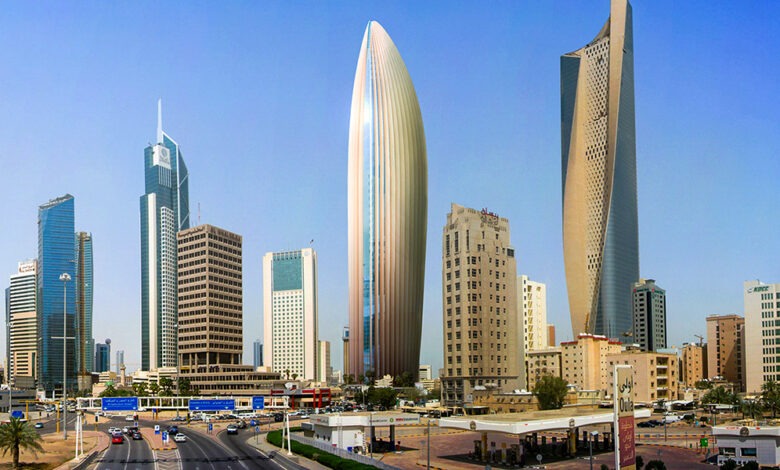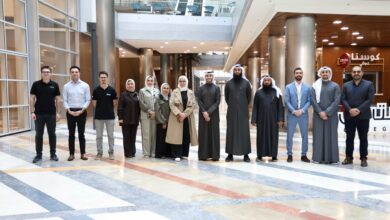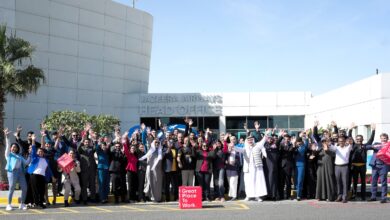Enhancing FDI promotes economic growth

THE TIMES KUWAIT REPORT
Foreign Direct Investment (FDI) is a key element in boosting capital, increasing employment opportunities, enhancing quality of human resources, fostering innovation and technology transfers and stimulating productivity gains, all of which are instrumental in driving economic growth and development. The importance of augmenting FDI inflows gains even more salience during periods of economic slowdowns such as the one the world currently faces.
According to the World Bank the global economy is poised for its third consecutive year of economic deceleration. In its latest report on global economic prospects in 2024, the World Bank said that amid ongoing conflicts, trade fragmentation, financial stresses, climate-related disasters, and anemic international trade and investment, the global economy is expected to slow down to 2.4 percent this year, marking the weakest half-decade performance in over 30 years.
The Bank warned that unless major course-corrections are urgently undertaken one out of every four developing economies could be poorer by the end of 2024 than they were before the onset of COVID-19 pandemic. On a more optimistic note, the report indicated that by implementing proper macroeconomic and structural policies, and having well-functioning institutions, nations could attract investments and improve their long-term economic prospects.
The World Bank’s assessment of global economic prospects for 2024 was underpinned by a report published in June 2023 by the United Nations Conference on Trade and Development (UNCTAD). The study, titled ‘World Investment Report 2023’ (WIR-2023), showed that overlapping international crises, higher food and energy prices, and surging public debt in 2022, precipitated a sharp drop in global investment flows, with FDI falling by 12 percent from USD1.48 trillion in 2021 to $1.29 trillion a year later.
The fall in FDI worldwide was also reflected regionally, with the Gulf Cooperation Council (GCC) states together recording an 18 percent drop in their FDI inflows year on year (y/y) in 2022. Foreign investments to the six-nation bloc fell from $45 billion in 2021 to $37 billion in 2022; however, this FDI slump was not witnessed evenly across all six economies of the GCC.
In the United Arab Emirates, the second largest economy in the Arab world, FDI in fact, increased by 10 percent from a year earlier to total a record $23 billion in 2022 — representing nearly 60 percent of total FDI to the GCC region. Meanwhile, in neighboring Saudi Arabia, the region’s largest economy and the world’s top crude oil exporter, FDI dropped by almost 60 percent in 2022 — falling to $7.9 billion from the $19.3 billion a year earlier.
Other GCC countries also saw uneven FDIs inflows that ranged from a y/y drop of 8 percent in Oman to total $3.72 billion in 2022, and a 107 percent dive for Qatar to a regional low of $76 million. On the other hand, Bahrain witnessed a 10 percent increase in its FDI inflows to record $1.95 billion in 2022, while Kuwait saw its FDI surge by 34 percent y/y to total $758 million in 2022. However, Kuwait’s seemingly remarkable FDI growth needs to be seen against the backdrop of the low base a year earlier, when disinvestments of over $273 million led to a negative FDI.
Kuwait has historically struggled to attract foreign investors, despite having many economic, geographic, and demographic advantages that should have made the country an ideal destination for global FDI inflows. Among the several strong economic indicators in Kuwait are abundant oil resources, a stable and strong currency, external assets of over $800 billion, low public debt, per capita GDP in 2022 of nearly $52,000, and a young, educated and talented population.
Additionally, the country has a robust banking and financial sector, an engaging private sector, and a strategic geographic proximity to major markets that enable easy access to trade in goods and services. Regrettably, the economic primacies that Kuwait enjoys have not translated to the country attracting significant FDIs. Since achieving a peak FDI of $3.26 billion in 2011, Kuwait’s foreign investments have followed a downward trajectory.
The country’s weakness in attracting sizeable FDI inflows over the past decade or more, can be attributed to a wide range of factors, including the economy’s overreliance on oil sector revenues; a non-oil sector that ironically is inextricably linked to oil sector fortunes and government contracts; an investment environment that many potential investors consider uninviting; and an overly bureaucratic and bloated public sector that gnaws into budget expenditures.
With over three-quarter of budget expenditure directed towards public sector wages, bonuses and subsidies, not enough resources remain to spend on vital infrastructure projects, especially during prolonged periods of low oil prices. The result is poor quality infrastructure that hampers and dissuades FDI. In addition, the country’s contentious political landscape that exudes instability and impedes necessary financial and structural reforms, have deterred FDI inflows.
The WIR-2023 study by UNCTAD noted that foreign direct investments are crucial to Emerging Markets and Developing Countries (EMDC), in particular during global economic downturns. The report indicated that foreign investments to EMDCs improve allocation of resources across sectors and producers; promote job creation; foster training and skill-set gains; trigger technology overflows; encourage research and innovation; support a more competitive business environment, and enhance overall economic productivity.
International institutions such as the World Bank, and International Monetary Fund as well as global and local consultancies, have stressed on the need for Kuwait to pursue economic diversification to wean the economy away from its overreliance on oil revenues. Analytical studies have also underscored that in order to foster sustainable and inclusive growth going forward, Kuwait will need to promote a favorable business and investment environment.
Everyone in Kuwait, from the government, to legislators and citizens are in agreement that Kuwait needs to diversify the economy, encourage private sector involvement, and create a climate more conducive to business and investment. But this is as far as the unanimity goes; when it comes to implementing these agreements there is marked divergence in how to go about it, and red lines frequently pop-up, which its proponents insist cannot be crossed.
In all fairness, governments in the past have attempted to introduce policies to reduce administrative hassles and remove bureaucratic barriers to trade and investments, as well as provide incentives and cut tariffs to attract FDI. In fact, a key plank of Kuwait’s ambitious ‘Vision 2035’ Development Plan is to encourage economic diversification by attracting FDI towards strategic industries like information and communications technology, renewable energy, electricity, water, tourism, health care, and education.
The government also established the Kuwait Direct Investment Promotion Authority (KDIPA) in 2013, with the mandate to attract value-added direct investments, and promote Kuwait as a lucrative investment destination. The Authority licenses and grants incentives and exemptions for investments, and streamlines the business environment to enhance Kuwait’s global competitiveness. However, since it began operations in 2015 to the end of March 2023, cumulative approved direct investments by the Authority amounted to only around KD1.5 billion.
It is apparent that in order to enhance FDI inflows to the country, Kuwait has to urgently diversify its economy; introduce policies and reforms to enhance business and investment climate, encourage private sector participation, and minimize government intervention in economic activities, as well as rejig the bloated public-sector.
Additionally, the country will need to develop and enhance a ‘real’ non-oil sector that helps spawn ancillary businesses, generates significant and stable employment opportunities, and enhances labor-market productivity. Among non-oil activities that could be boosted are tourism and hospitality, agriculture, environment, and medical services, as well as learning, training, and research facilities. However, achieving these initiatives will require significant transformation to the current political landscape; an unlikely scenario no doubt, but on which many in the country continue to pin their hopes.












